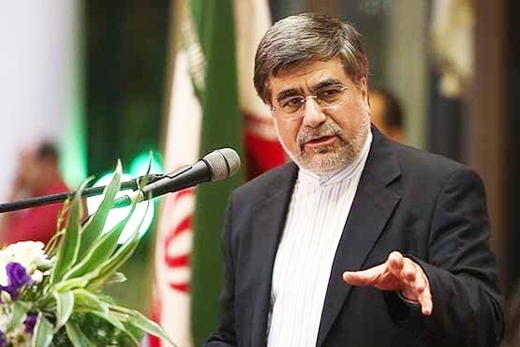The minister of culture and Islamic guidance has said that free access to and circulation of information is needed to put up a real fight against corruption, especially on the financial front.
Ali Jannati made the comment in a message he released to mark National Reporters Day (August 8) and added that any Iranian can access all unclassified information. He also said that access to information is people’s right and the government’s duty, adding the eleventh government insists on implementing the Law [on the Free Access to Information].
The following is a translation of part of Jannati’s message to the first conference on reporters, professional needs and social issues as reported by the Islamic Republic News Agency (IRNA) on August 7:
Professional challenges
At times reporters have to cover overlapping social issues – including judicial and police-related questions as well as the environment, health, education, etc. – for which they need serious studies, information and expertise. These questions on the social front have become a specialized field and media have to come to terms with this field and make planning for it.
Professional ethics
Efforts are needed to boost the ethical code of conduct in the news business, meet the reporters’ professional needs and solve their social issues. Different types of social networking sites, weblogs, microblogs, podcasts, wikis [webopedia] and [online] content-related gatherings have caused rapid changes. Reporters and those involved in the news business can use these media – one way or another – to do a professional job.
Citizen journalists
Social media have enabled a wide range of citizens to collect, filter and circulate information. This means reporters and news media have no exclusive access to news anymore. These pieces of news originate from a community in which journalists and citizens trade information.
In the newly-emerged media community, non-journalists or citizen reporters act as new sources for news organizations. The pace of evolution is strikingly rapid, leaving not enough time [for those in charge] to define the related laws and their annexes, but the news corps can stick to professional ethics and control and regulate such an atmosphere [in which laws have yet to be drafted or enforced].
Professional problems
Print media suffer from job insecurity. As a result, their reporters and journalists face occupational instability as well as insurance and wage issues, and this shatters their calm. This comes as reporters have no support in tackling such problems, like other occupations which have a guild to support them. The Ministry of Cooperatives, Labor and Social Welfare can play a key role in easing their burden.
